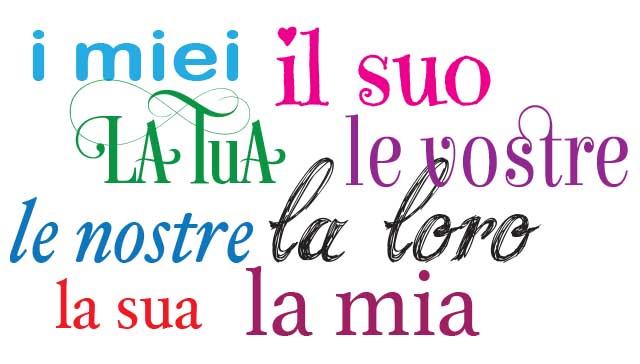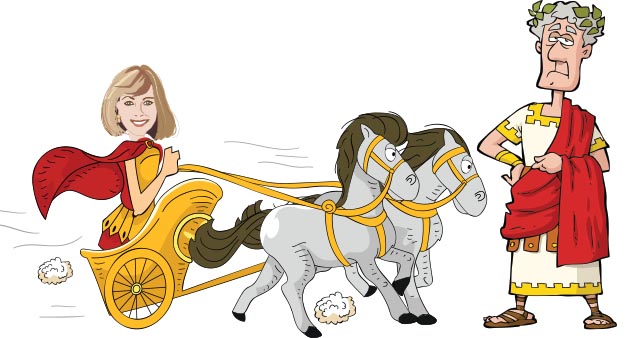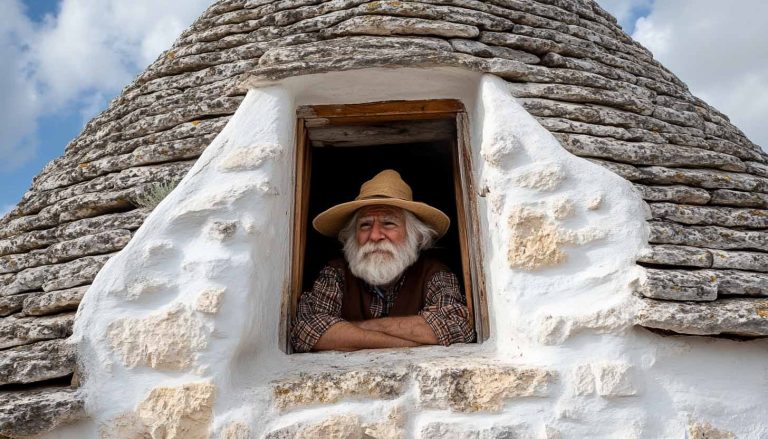
Italian Possessive Adjectives and Possessive Pronouns
Aggettivi e pronomi possessivi italiani — How to make things possessive in Italian
Il tuo, il mio, e il nostro! A chi appartiene?
Yours, mine, and ours! Who does it belong to?
In inglese, il possesso si indica aggiungendo un apostrofo e una “s” al nome, come in “Mary’s book”. In italiano, il possesso si esprime con “di” seguito dal nome, come in la vespa di John (“il libro di Maria”). Questo evidenzia una differenza fondamentale nel modo in cui le due lingue trattano il possesso.
In English, ownership is shown by adding an apostrophe and “s” to a name, like “Mary’s book.” In Italian, possession is expressed with “di” followed by the name, as in la vespa di John (“the book of Mary”). This highlights a key difference in how the two languages handle possession.
La Vespa di John.
John’s Vespa.
Capito? Bene! Passiamo agli aggettivi possessivi.
Got it? Good! Let’s move on to possessive adjectives.
In italiano, gli aggettivi possessivi [mio, tuo, suo, nostro, vostro, loro] e i pronomi possessivi [mio, tuo, suo, nostro, vostro, loro] hanno le stesse forme. Precedono sempre il sostantivo e devono concordare in genere e numero con esso.
In Italian, possessive adjectives [my, your, his, her, its, our, their] and possessive pronouns [mine, yours, his, hers, its, ours, theirs] share the same forms. They always precede the noun and must agree in gender and number with it.

Possessive adjectives change according to two factors:
Are you talking about one thing or more than one?
Maschile o femminile: il sostantivo è maschile o femminile?
Is the noun masculine or feminine?
Important: The owner’s gender doesn’t matter!
Possessive adjectives agree with the gender
and number of the noun, not with the person who owns it.
Michelangelo scolpisce la sua statua.
Michelangelo carves his statue.
It doesn’t matter that Michelangelo is a man;
what matters is that “la statua” is a feminine noun.
Vedi quella donna? Il suo volo parte alle due.
Do you see that woman? Her flight departs at two.
Again, it doesn’t matter that it’s a woman;
what matters is that “il volo” is a masculine noun.
Possessive Adjectives and Possessive Pronouns
Possessive adjectives and possessive pronouns
have the same forms. the definite articles are generally used before both.
Questo è il nostro treno, quello è il vostro.
This is our train, that is yours.
La mia penna gialla. La sua penna gialla.
My yellow pen. His yellow pen.
Il vostro bicchiere. I vostri bicchieri.
Your drinking glass. Your drinking glasses.
| Masculine | Feminine | Adjective | Pronoun | ||
| il mio | i miei | La mia | Le mie | My | Mine |
| il tuo | i tuoi | La tua | Le tue | Your | Yours [fam. sing] |
| il suo | i suoi | La sua | Le sue | His, her, its | His, hers, its |
| il Suo | i Suoi | La Sua | Le Sue | Your | Yours [form. sing] |
| il nostro | i nostri | La nostra | Le nostre | Our | Ours |
| il vostro | i vostri | La vostra | Le vostre | Your | Yours [fam. pl.] |
| il loro | i loro | La loro | Le loro | Their | theirs |
| il Loro | i Loro | La Loro | Le Loro | Your | Yours [form. pl] |
Articoli e famiglia: le eccezioni
Articles and family: the exceptions
Gli articoli determinativi (“il,” “la,” “i,” “le”) si usano quasi sempre con gli aggettivi possessivi, ma ci sono delle eccezioni:
Definite articles (“the”) are almost always used with possessive adjectives, but there are exceptions:
Si omette l’articolo con i parenti al singolare non modificati:
The article is omitted with singular, unmodified family members:
Mia sorella va a Firenze.
My sister goes to Florence.
Vostro cugino vuole sposare la sua fidanzata l’anno prossimo.
Your cousin wants to marry his girlfriend next year.
Non conosco vostre cognate.
I don’t know your sister-in-laws.
| Il padre = mio padre | La madre = mia madre |
| Il marito = mio marito | La moglie = mia moglie |
| Il figlio = mio figlio | La sorella = mia sorella |
Attenzione: The article “the” is retained when a possessive adjective precedes a modified singular noun or diminutive denoting family members. It is optional when used with “nonno” or “nonna.”
Il mio babbo e la mia mamma arrivano giovedì.
My dad and my mom arrive Thursday.
La mia sorella maggiore canta bene.
My big sister sings well.
Il figliolo studia la matematica all’università.
My young son studies math at college.
Nostra nonna [or la nostra nonna] fa la pasta buona
Our grandmother makes good pasta.
Ora tocca a te! Prova con questi esercizi.
Now it’s your turn! Try these exercises.
Maria vuole festeggiare il compleanno di [her husband] ___________________
Noi non conosciamo [your French cousins Alberto e Antoinette] ___________________
[Their purses] _____________ sono gialle, [ours] _____________ sono blu.
[Her husand] ______________studia all’Università di Roma.
Francesca, come si chiama [your little sister] ___________________?
[Paolo’s parents] _________________ abitano a Arezzo, [mine] _____________ abitano a Napoli.
Un tocco cinematografico! / A cinematic touch!
Vi lascio con questa scena tratta dal film Nuovo Cinema Paradiso:










